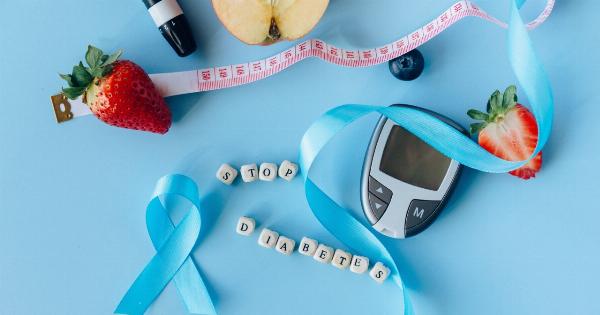When it comes to maintaining healthy skin, we often focus on skincare products and routines to keep it looking its best. However, what many people fail to realize is that the key to achieving clear, radiant skin starts from within.
Your diet plays a crucial role in maintaining hormonal balance, which in turn affects the overall health of your skin. In this article, we will explore how your diet can impact hormonal activity and skin health, and the best foods to incorporate into your daily routine for a glowing complexion.
The Link Between Hormonal Activity and Skin Health
Your hormones play a significant role in regulating various processes in your body, including your skincare. Hormones are chemical messengers that are produced by various glands in your endocrine system.
They are responsible for maintaining balance and coordination between different bodily functions. When your hormones are in balance, your skin tends to be healthy and youthful.
However, imbalances in hormonal activity can lead to a variety of skin issues such as acne, dryness, oiliness, and premature aging. Hormonal imbalances can occur due to various factors, including stress, genetics, and dietary choices.
By focusing on your diet, you can influence hormonal activity in your body and promote clearer, healthier skin.
Key Nutrients for Hormonal Balance
1. Omega-3 Fatty Acids:.
Omega-3 fatty acids are essential for maintaining healthy skin and hormonal balance. They help reduce inflammation in the body, regulate oil production, and promote skin cell turnover.
Incorporate foods high in omega-3s such as fatty fish (salmon, mackerel), flaxseeds, chia seeds, and walnuts into your diet.
2. Antioxidants:.
Antioxidants are crucial for fighting off free radicals in the body, which can cause cellular damage and affect hormonal activity. Include foods rich in antioxidants such as berries, dark leafy greens, green tea, and turmeric in your meals.
3. Vitamin C:.
Vitamin C is an important nutrient for collagen production, which improves skin elasticity and helps reduce the appearance of wrinkles. Citrus fruits, bell peppers, strawberries, and tomatoes are excellent sources of vitamin C.
4. Zinc:.
Zinc plays a vital role in regulating hormone levels and has anti-inflammatory properties that can prevent acne breakouts. Opt for zinc-rich foods like oysters, pumpkin seeds, spinach, and lean meats to support hormonal balance and clear skin.
The Impact of Sugar and Processed Foods
High intake of sugar and processed foods can wreak havoc on your hormonal balance and skin health. Sugary foods cause a spike in insulin levels, which can lead to increased oil production and inflammation in the skin.
Processed foods often contain harmful additives, preservatives, and trans fats, which can throw off hormonal balance and contribute to skin issues.
To maintain hormonal balance and healthy skin, limit your consumption of sugary treats, sodas, processed snacks, and fast food. Instead, focus on whole, nutrient-dense foods that nourish your body and keep your hormones in check.
Balancing Blood Sugar Levels for Clear Skin
Imbalances in blood sugar levels can also impact your hormonal activity and skin health. Spikes in blood sugar trigger inflammation and can lead to hormonal acne breakouts.
To keep your blood sugar levels stable and support clear skin, incorporate these tips into your diet:.
1. Choose Complex Carbohydrates:.
Opt for whole grains, legumes, and starchy vegetables as they contain fiber and take longer to digest, preventing rapid spikes in blood sugar.
2. Include Protein in Every Meal:.
Eating protein-rich foods like lean meat, fish, poultry, eggs, and plant-based proteins helps slow down carbohydrate digestion and stabilize blood sugar levels.
3. Don’t Skip Meals:.
Skipping meals can lead to drops in blood sugar levels, triggering cravings for sugary foods and causing hormonal imbalances. Have regular, balanced meals throughout the day to keep your blood sugar stable.
4. Avoid Refined Sugars and Sweeteners:.
Refined sugars and sweeteners are quickly absorbed into the bloodstream, causing spikes in blood sugar levels. Instead, opt for natural sweeteners like stevia or consume moderate amounts of fruits.
Gut Health and Hormonal Balance
Your gut health and hormonal balance are closely interconnected. The gut plays a crucial role in hormone production, elimination, and nutrient absorption. An unhealthy gut can lead to hormonal imbalances and skin issues.
To support gut health and hormonal balance:.
1. Eat Probiotic Foods:.
Include fermented foods like yogurt, kefir, sauerkraut, and kimchi in your diet. These foods provide beneficial bacteria that support gut health and hormone regulation.
2. Fiber-Rich Foods:.
Consume a variety of fiber-rich foods, such as fruits, vegetables, whole grains, and legumes. Fiber helps regulate bowel movements and promotes a healthy gut microbiome.
3. Stay Hydrated:.
Drink enough water to keep your digestive system functioning optimally. Water helps flush out toxins and supports nutrient absorption.
The Role of Stress in Hormonal Balance and Skin Health
Chronic stress can wreak havoc on your hormonal activity and skin health. When you experience stress, your body releases the hormone cortisol, which can lead to inflammation and breakouts.
Additionally, stress can disrupt sleep patterns, affect nutrient absorption, and lower your immune system’s ability to fight off skin issues.
To reduce stress levels and maintain hormonal balance:.
1. Practice Stress-Relieving Activities:.
Incorporate stress-relieving activities into your daily routine, such as yoga, meditation, deep breathing exercises, or engaging in hobbies that bring you joy.
2. Get Enough Sleep:.
Poor sleep can increase stress levels and affect hormonal activity. Aim for 7-9 hours of quality sleep each night to support overall well-being and healthy skin.
3. Prioritize Self-Care:.
Take time for self-care activities that help you relax and unwind. This could include taking baths, reading a book, doing skincare rituals, or spending time in nature.
Conclusion
Your diet plays a crucial role in hormonal activity and skin health.
By incorporating nutrient-dense foods, balancing blood sugar levels, promoting gut health, and managing stress, you can make positive changes in your overall well-being and achieve a clear, glowing complexion. Remember, healthy skin starts from the inside out!.






























